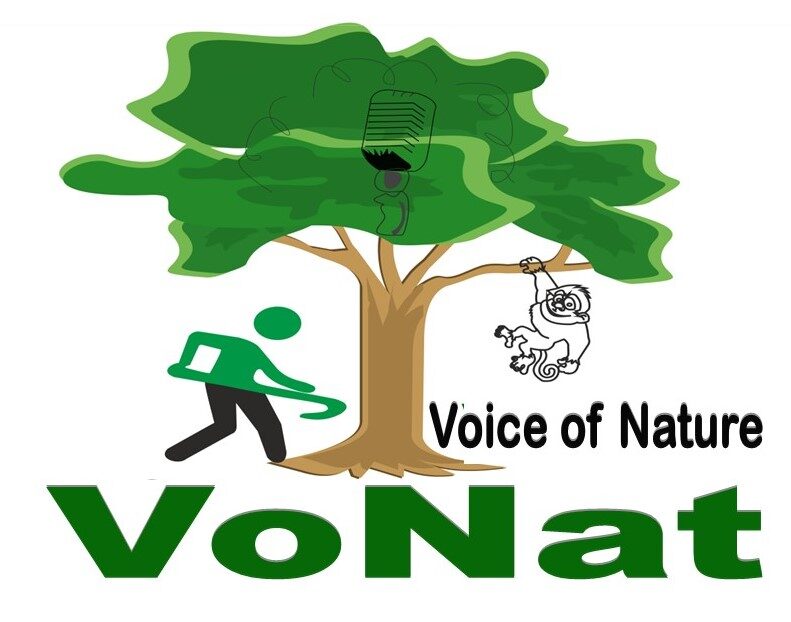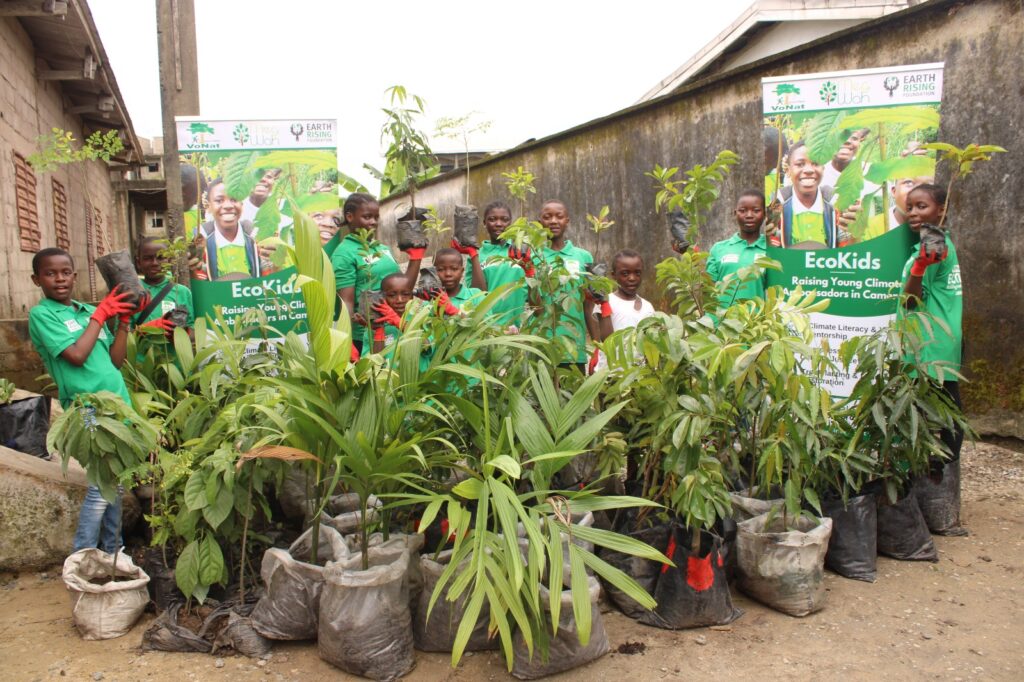Kids and youth are embarking on a hands-on tree planting initiative across many communities in Bonaberi-Douala, Littoral Region of Cameroon to fostering climate adaptation and climate impact mitigation. The ornamental, fruit and medicinal tree species planted in schools, hospitals, churches and other public spaces is part of two micro projects developed and implemented by some 20 kids and youths as part of Voice of Nature (VoNat) and Meg Wah(My Earth)’s annual EcoKids programme. The EcoKids programme, implemented with funds from Earth Rising Foundation, aims to raise young climate ambassadors in Cameroon.
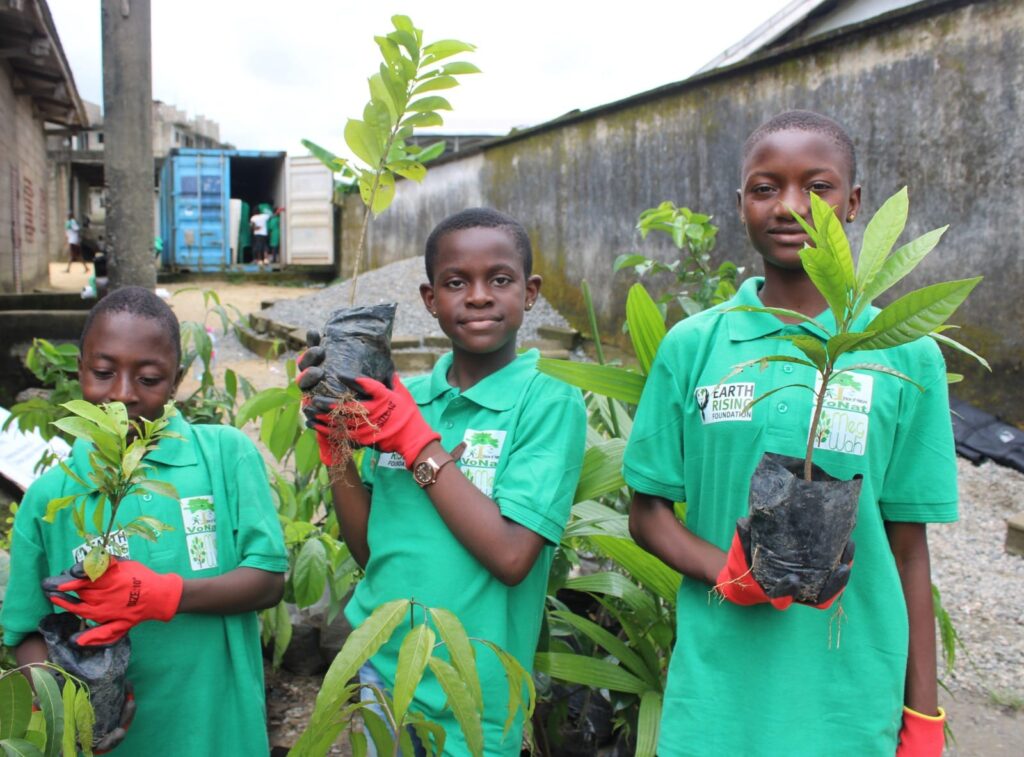
According to the Program Coordinator of Voice of Nature (VoNat), Dr. Dongang Ceraphine, children are among the most vulnerable to climate impacts and most take frontline actions in contributing solutions to the crisis. “We had an orientation with them on how to identify and adapt to climate challenges in their communities, using pictures, videos, charts,” Dongang Ceraphine said. “We then shared them into 10 groups to brainstorm and propose climate solutions to the identified challenges. From these brainstorming sessions, the children developed micro projects tailored to address their community’s climate issues,” she added.
The VoNat Programme Coordinator disclosed that the tree planting activity, executed by two of the groups consisting of 20 of the 100 participants, was one of the developed initiatives. Participants, aged 8 to 17, were guided by environmental experts from the two local non-profit organizations who taught them proper planting techniques. For many of the children, it was their first time participating in such exercise. Some took seedlings home to extend the tree planting to their families and schools.
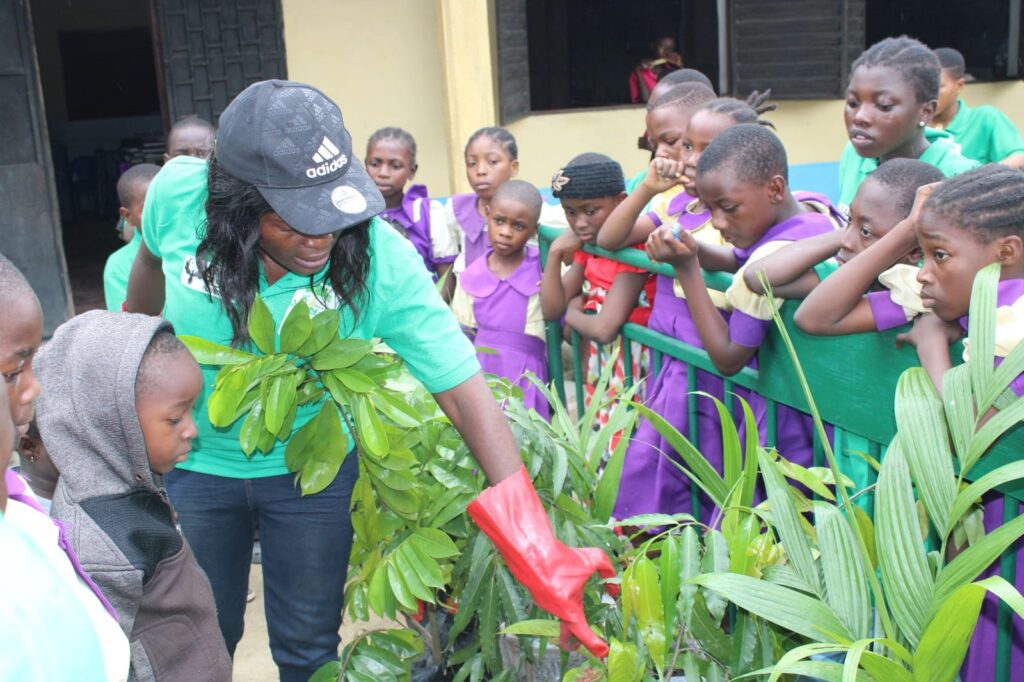
Douala, a bustling metropolis has long encountered environmental challenges such as recurrent flooding, rising temperatures, pollution, problems aggravated by climate change. Dr. indicates that this project is also geared towards curbing some of these environmental issues plaguing the town. “We were able to plant different species of trees in different schools and residential areas. We believe that these trees are going to help in stabilizing the climate, bring shelter and beautify the environment” Dr Dongang Ceraphine shared.
Other micro projects developed by the groups addressed varied mechanisms to climate mitigation and adaptation including; Climate smart gardening, community engagement and sensitization on the impact of flooding and fertilisers to agricultural yields, plus recycling, thrash can donations to foster waste management. As the children wrapped up their tree planting crusade, they pledged to uphold their commitment to environmental stewardship, vowing to exhibit best conservation practices in their daily lives.
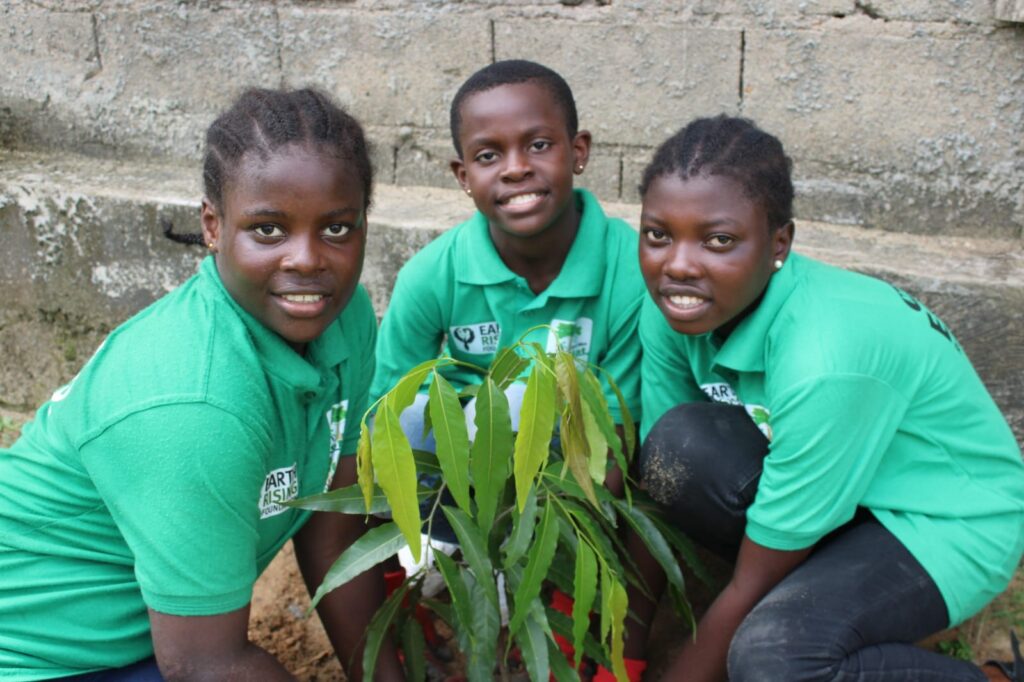
Studies indicate that engaging children in sustainability actions transforms then into sustainability advocates who can influence the decision making of their parents and communities. The study recommends children empowerment as a core aspect in sustainability endeavors.
UNICEF’s Children Climate Risk Index states that one billion children globally face extremely high risks from climate impacts, With 559 million children enduring frequent heatwaves. Over the past six years, 43.1 million children have been internally displaced due to climate induced disasters. Other united nations statistics highlight that, 40 million children are having their education disrupted every year due to disasters exacerbated by climate change. Children and other young people most not remain passive victims of this global crisis.
By Jabi Katy Chale
